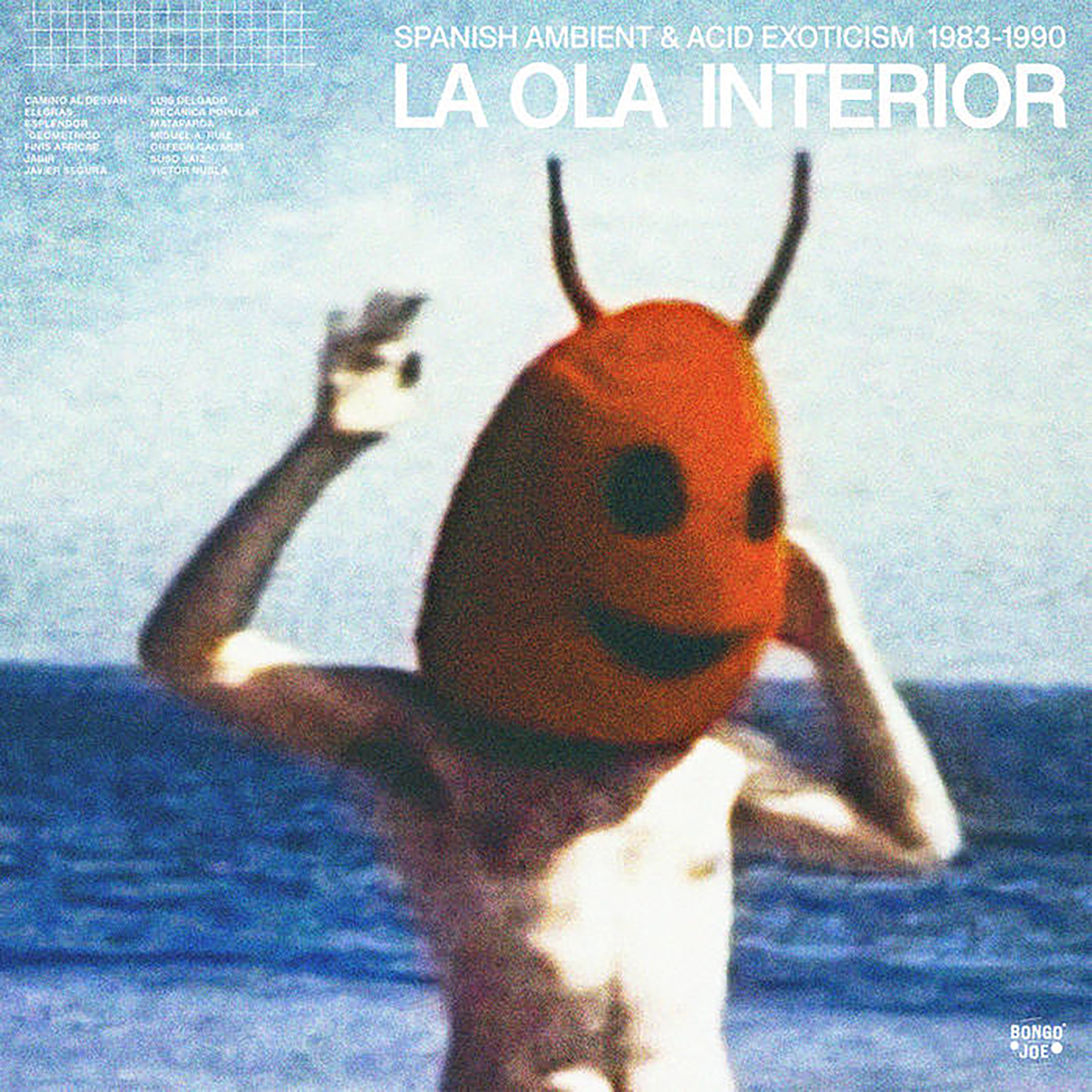 Since the invention of cassette tapes, every country has had its own independent tape scene—whether independent musicians with limited release output via the medium or distributors sharing music under harsh conditions. Spain is particularly distinct in this time since, following the death of dictator Francisco Franco the prior decade, the country's creative class was reawakened and allowed to flourish. This tasty compilation from Swiss label Bongo Joe harnesses this movement, focusing on an array of Spanish and Spanish-related electronic music released between 1983 and 1990 that bleeds exoticism rooted in ambient investigations. The compilation succeeds at painting a picture of a lesser-known world of Balearic mysticism with Ibiza-influenced beats and treatments.
Since the invention of cassette tapes, every country has had its own independent tape scene—whether independent musicians with limited release output via the medium or distributors sharing music under harsh conditions. Spain is particularly distinct in this time since, following the death of dictator Francisco Franco the prior decade, the country's creative class was reawakened and allowed to flourish. This tasty compilation from Swiss label Bongo Joe harnesses this movement, focusing on an array of Spanish and Spanish-related electronic music released between 1983 and 1990 that bleeds exoticism rooted in ambient investigations. The compilation succeeds at painting a picture of a lesser-known world of Balearic mysticism with Ibiza-influenced beats and treatments.
Disc one of this two-disc compilation opens with the hypnotic ambient piece "Transparent" by Miguel A. Ruiz and ends with the fantastic "Trivandrum" by the same. It was "Trivandrum" that immediately caught my attention, sampling what appears to be video game audio over a majestic electronic loop of drums and bass. Both tracks are taken from the 1986 release Climatery but sound tremendously fresh yet today. Since the early eighties, Madrid musician Ruiz has worked under various names (Técnica Material, Orfeón Gargarín, Codachrom, Dekatron II, Michel Des Airlines, Funeral Souvenir, more) yet seems to be little known outside of his native country. Similarities to early O Yuki Conjugate exist, making use of mantric loops and tribal elements founded on a futuristic backdrop. Ruiz is a repeat name, along with Barcelona native Victor Nubla (1956-2020), the more well-known of the two. Nubla's "Chandernagor" is present, showcasing modulated clarinet for which he was known, as well as "20000 Lenguas" ("20,000 languages"), which puts his synthesizer work on display in a clangorous chorus of vocals.
One could easily follow up Esplendor Geométrico's "Sheikh" with Cabaret Voltaire's "Three Mantras," so strikingly similar is the intro to it. Indeed, the band formed in 1980 from the ashes of El Aviador Dro y sus Obreros Especializados who found their start following an advertisement specifically requesting musicians who liked Throbbing Gristle, Cabaret Voltaire, and The Residents. This track consolidates the best of all three groups and is worth the price of admission alone, but the album continues to dole out gems. The majestic "Hybla" from Finis Africae serves as a glorious finale to an imaginary film, a scene instantly crafted in the listener's mind's eye, backed by tribal drumming and chanting that creates a timeless audio-visual experience worthy of repeat listenings. Javier Segura's "Malagueñas 2" offers a rhythmically modern interpretation of a traditional style of Andalusian music (flamenco) that typically is not danced to, having no regular rhythmic pattern ("cantes libres" or "free song"). Utilizing its already rich melody, version 2 leverages the song's typical rich flourishes and microtones not typically found in Western tuning, elements extracted and merged with ethereal, rhythmic guitar and synthesized vocals resulting in a drawn-out and hypnotic dream sequence.
Other standout tracks include Luis Delgado's "El Llanto De Nouronihar," with its ethereal ambiance and ghostly, modulated vocals interspersed with synthetically treated western (violin) and exotic instruments. The space-age modulations of Suso S√°iz, using sequencers and theremin on "Horizonte Paseo" ("Horizon Walk"), find balance with bells and ancient-sounding stringed instruments, along with the everyday sounds of children playing. Camino Al Desvan's "Fock Intimida A Gordi" draws distinct comparisons to The Residents ("Hello Skinny"). Conversely, Jabir's aptly named "Vuelo Por Las Alturas De Xauen" ("Flight Through the Heights of Chefchaouene") with flute and looped Spanish guitar feels as if the listener is gliding over the famous "blue city," itself a popular area for Spanish tourists.
A few tracks sound a bit more dated but no less intriguing, such as Orfeon Gagarin's "Última Instancia" and Mataparda's "Me Llena La Cachimba." In contrast, Mataparda's "La Papa Suave" ("The Soft Potato") modulated use of bells and xylophone make it the preferred choice from the group. There are no wrong choices here, however. This is a cohesive, if limited, snapshot of a fruitful movement from a nation emerging from a time of tumult and finding the freedom to experiment; radical music for radical times. All artists in this release are worthy of further investigation, particularly Miguel A. Ruiz, Esplendor Geométrico, Finis Africae, and Javier Segura.
Samples can be found here.
Read More

